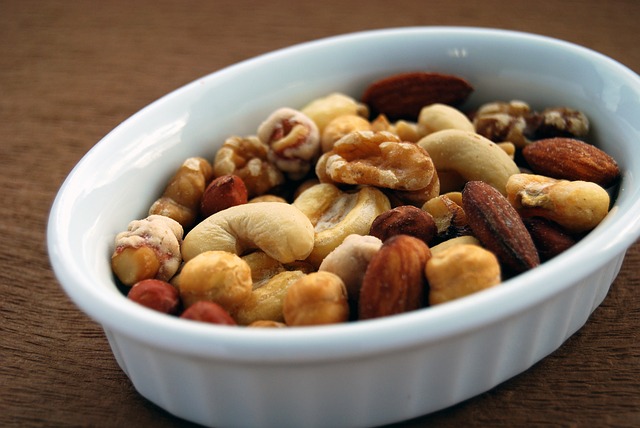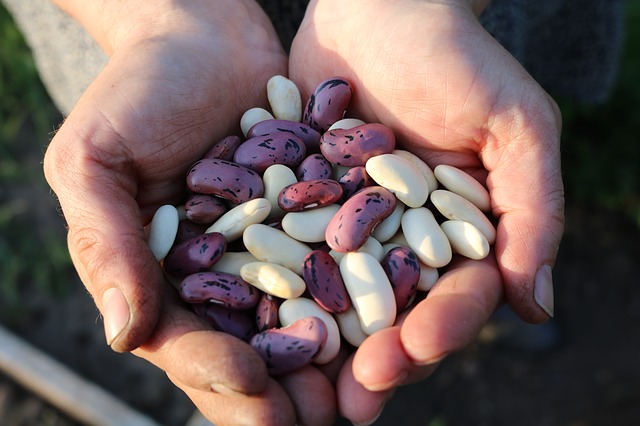Pre-conception + Pregnancy Superfoods { + Nutrients } PART ONE
Whether you are trying to conceive, just found out you are, in fact, pregnant, or are well into your first trimester – let’s talk about { SUPER } foods and nutrients to focus on during this very special time! Though most of us make the decision to intentionally eat as healthfully as possible once we find out there is a growing human in your body, it is ideal if we can think about + implement these things prior to conceiving, knowing that maternal nutrient stores before pregnancy help to ensure that mama and baby are “all set” when the egg gets planted, and those nutrients are now being utilized in over-drive. Because there is a lot of information I would like to pass along, I have decided to break this post down into two separate articles, so that we can all “digest” the delicious details. Part one is all about the specific macronutrient details: protein, carbohydrates + fats ( + water! ). Let’s dive in!
calories
First of all, let’s chat about the question everyone asks: “I am newly pregnant, how many calories should I eat every day?” – your answer: it depends. In my practice, I do work with my clients specifically with customizing a good number to “shoot for,” but this factors in all kinds of individual aspects based on the client’s needs (exercise type and frequency, stress, type of job, previous pregnancies, various genetic mutations, previous weight history, plus much more). Lots of websites suggest no need to increase calories during your first trimester, but I usually suggest increasing your calories by around 100 per day during the first trimester, giving your growing baby a bit of surplus nutrients to pull from (after all, first trimester is when baby is growing incredibly fast – although it is not “seen” physically until the pregnancy progresses). As we creep into the second and third trimesters, this number increases, again more specifically based on a multitude of factors.
protein
Let’s talk protein needs: depending on what your current protein intake is, you may just need to stay right where you are, or increase a touch. I usually suggest around 20% of your intake be from protein during pregnancy. (For an example, if your “goal” is 2,200 calories per day, you would aim to eat 100-110 grams of protein per day, which would equal about 20% of your calories). Spacing this out frequently and consistently throughout your day can also help with sustained energy (um, hello major fatigue) and blood sugar balancing, which can help keep pregnancy-related nausea under control (however – there are several theories as to the underlying cause of nausea during pregnancy; consistent protein intake may help not at all or a lot…) I suggest a variety of proteins shuffled throughout your diet weekly, including EGGS (CHOLINE – everyday, ya’ll, see part two!), chicken, salmon, full-fat dairy, grass-fed meats, beans, quinoa, and game meat (such as venison or buffalo).
fat
Fat is where it’s at! This study suggests that the quality of fats is what we should focus on, not necessarily how much we get each day. Fetal development and infant growth require a lot of fat (not to mention breast milk quality + production), and as I have mentioned a million times before, quality is everything. We want to make a shift to more polyunsaturated fats in the form of DHA (docosahexaenoic acid), a subset of the lovely omega-3 fatty acids we all know are of uber importance for ALL of us. Less of the lower quality, industrialized and processed fats. (For a fat breakdown + suggestions on which to avoid + which to embrace, read this post). We will talk more about DHA in part two of this post (hint: maternal intake of this essential fatty acid during pregnancy is not only important for mama’s health + baby’s growth in utero, but the benefits go well beyond into postpartum and mama + baby’s health years to come!). Fats to highlight: avocado, olive oil, variety of nuts + seeds and their butters, coconut oil, grass-fed full-fat dairy products, grass-fed butter, ghee, salmon + sardines. Depending on a client’s specific intake, I may suggest adding a good quality DHA/EPA supplement. As far as how much to eat? Again, differs based on many variables (such as preconception fat storage + health history). I usually suggest fat calories be somewhere between 30% and an upwards of 50%! This can be a huge mental hurdle to tackle…
carbs
And carbohydrates– I usually suggest keeping this number in the moderate category, as too low can add to energy deficits, and we want to ensure that mama’s gut microbiome is nice and diverse, as this sets the tone for your developing baby’s future gut health (I know right?! SO MUCH PRESSURE!). Focusing on limiting intake of processed carbs and getting more “whole foods” based, from sources such as veggies, fruit, starches, beans, and whole grains. Obviously, getting our body’s ready to make a baby, + then actually making a baby requires a lot of energy. These babies require plenty of glucose (which, like the other macro + micro-nutrients, get’s shuttled to the baby through the placenta). Proper intake of glucose/carbohydrates helps to ensure that baby is growing at an optimal rate. Adequate amounts of carb intake also aids in maternal storage of fat { <— a VERY good thing }, especially during the first trimester, which you will quickly access during breastfeeding. In my opinion, the exact amount of carbs varies the most out of the three macronutrients discussed above. Activity type + frequency manipulates this number the most. Runners, cross-fitters, and extreme athletes obviously will require more carbs than a mama that is more sedentary. I usually suggest a minimum of 150 grams per day for pregnant women. This number can increase drastically based on your activity level.
Carbohydrate intake does get tricky when diabetes, insulin resistance or gestational diabetes comes into play. I highly suggest meeting with a dietitian (such as yours truly) to get on a specific meal plan if this is something you are at risk for or are currently battling.
Carbs to limit? Refined + processed carbs, such as white breads/flours, pastas, pastries, desserts { notice I said limit, not avoid 🙂 }, cereals, and boxed foods. Obviously, reducing sugar is always something we can work on….pregnancy may be the hardest time to do so, but doing so can help with both the health of your baby and YOU (full disclaimer – I ate my fair share of sugar-loaded ICING during my first pregnancy, insert eye roll)… Try to avoid high fructose corn syrup. Carbs to focus on: starchy veggies (yams, sweet potatoes, plantains, peas, squash, pumpkin, parsnips), beans, whole fruits + whole grains.
water
The often forgotten necessity is WATER. If you have been pregnant before, you know that your blood volume increases tremendously (almost 50%) because YOU HAVE FELT IT. Dizziness? Light headed? Swelling? Heart rate and blood pressure changes? All due to increased blood volume. Because of this, we need to naturally increase our water intake in order to sustain this evolutionary shift. Sufficient water intake also helps keep nausea at bay, reduce hormone-related constipation and keeps our vascular system running smoothly. I usually suggest 80-100 oz per day (yikes!).
ummm…so I have to be perfect?
Having said all of this, pregnancy diets are far from perfect. Please do not read this and feel as though have or are currently messing up! My diet during pregnancy definitely did not adhere to my own guidelines (not even close). Reality is….. LIFE. Just like in every other circumstance + season. The good news is, our babies are very resilient + will get what they need regardless in most cases! So please, give yourself grace if you are like me and your pregnancy diet did not look exactly as you had dreamed it would prior to conceiving…. 🙂 PROGRESS OVER PERFECTION
Hopefully you guys enjoyed part one of this series. I am super passionate about prenatal health + nutrition, and cannot wait to share with you more in-depth information about functional super foods + specific nutrients to highlight during pregnancy (+ preconception) in part TWO!
MEDICAL DISCLAIMER: I am not a Medical Doctor nor do I want to pretend I am one. The information in this article, as every article and post I will ever write, is intended to be used as information only, not medical advice. Please seek your doctor’s approval before implementing any of the above suggestions.










